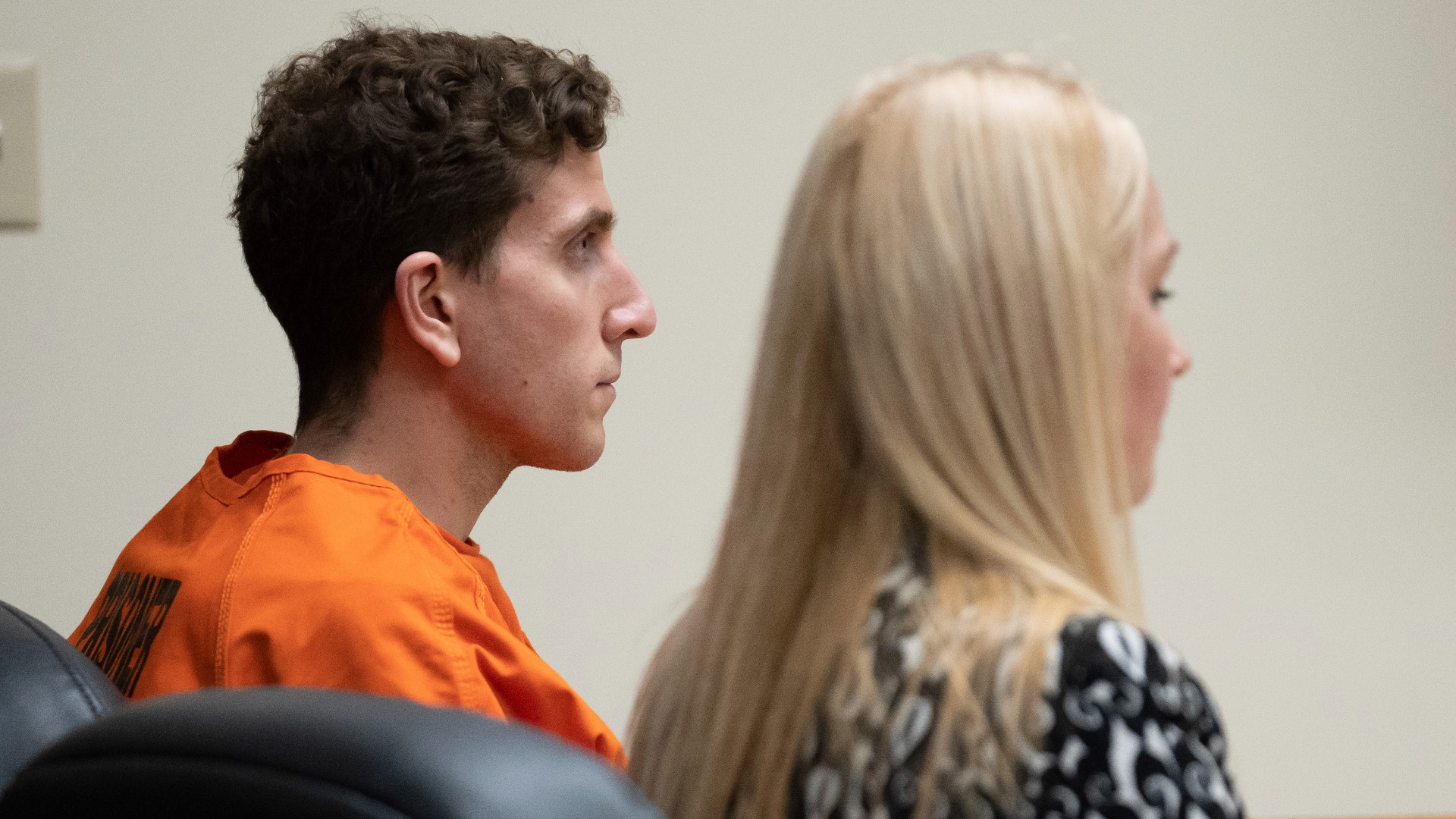MOSCOW, Idaho — The defense for Bryan Kohberger, the man charged with murdering four University of Idaho students, filed an objection to an appeal regarding a gag order for attorneys and law enforcement to prevent them from speaking with media.
On Nov. 13, 2022, Kayalee Goncalves, Madison Mogen, Ethan Chapin and Xana Kernodle were stabbed to death in their Moscow, Idaho, home. Over a month later, police arrested Washington State University Ph.D. student 28-year-old Kohberger in Pennsylvania in connection with their deaths.
The Goncalves family retained attorney Shannon Gray, who has been fighting the gag order that was put in place on Jan. 4, later amended on Jan. 18 by Latah County Judge Megan Marshall.
That gag order also bars family attorneys like Gray from speaking with the public or media. Gray said in his appeal the current gag order only applies to the attorneys, investigators and agents and the defendant, because they are the only "parties" in the case, and that it violates their First Amendment right.
However, Kohberger's defense filed an objection to that appeal on Feb. 8.
Defense Attorney Anne Taylor and Jay Logsdon, a litigation attorney, write that the U.S Supreme Court has ruled First Amendment rights to freedom of speech are limited when it can prevent a defendant from receiving a fair trial. Even though Gray is not directly involved with the case itself, Taylor argues that his status as a lawyer alters his free speech protection.
Taylor cites the U.S Supreme Court as relying upon previous rulings that lawyer's statements can pose a threat to jury proceedings since they are received as being more authoritative.
"Mr. Gray has special access to information via his clients. Dissemination of information forbidden by the Court’s order would be deemed authoritative as a result of this access and Mr. Gray’s status as an attorney, and therefore would endanger the jury’s impartiality," Taylor says in the filing.
The defense also argues that even though Gray said he would only be speaking on the family's thoughts and opinions, it would not matter because the family is exempt in the order. The family has already been speaking on the matter by themselves, the defense writes.
"Mr. Gray’s representation of the Gonalvez family does not entitle him to the same degree of freedom of speech they enjoy as ordinary citizens," the filing states. "While it is true that Mr. Gray and the Goncalves family have criticized the police in this matter in the past, since Mr. Kohberger’s arrest their statements have been focused on him."
Mr. Gray is bound by "the rules of professional conduct," the filing says, and "the First Amendment does not excuse him from that obligation."
On the other hand, the State filed a memorandum on Feb. 8 of points regarding the gag order, much without commentary.
The State cites Sheppard v. Maxwell, a case where the court found jurors were exposed to information that was not admitted in trial, and that the court failed to preserve the defendant's right to a fair trial.
The U.S Supreme Court also said that judges should try to alleviate statements to the press that could be inaccurate and discredit witnesses or statements during trial by controlling the release of leads to the press by law enforcement and attorneys, the State writes.
The State also cites that some courts have found attorney's statements to the press are in fact protected by the First Amendment if the court identifies someone who would like to speak, considers the timing and nature of their speech and whether or not it would cause a clear and present danger to the right to a fair trial.
The State also submitted an affidavit of Latah County Prosecutor Bill Thompson, which says the Goncalves family are "potential witnesses at trial and/or sentencing."
Watch more coverage of this story
Ongoing coverage of the University of Idaho investigation can be found in our YouTube playlist:

